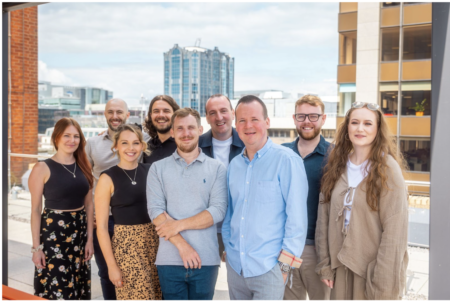- New study reveals a growing disparity in workplace AI usage across job roles
- 73% of senior managers use AI monthly—only 32% of entry-level employees do the same
- Millennials have emerged as the most frequent users of AI, outpacing Gen Z
- Poor AI integration is linked to a 50% drop in employee productivity
A new report by Employment Hero has highlighted a growing “AI advantage gap” in the UK workforce, where senior leadership is reaping the rewards of artificial intelligence while younger or lower-level staff are being left behind.
The Work that Works report illustrates an uneven distribution of AI usage in UK businesses. Senior managers appear to be using AI to boost their efficiency—with 73% engaging with AI tools monthly—yet only 32% of entry-level workers report similar access or usage.
Despite assumptions that Gen Z would lead the charge on AI integration, it’s actually millennials who are making the most of these tools in their daily roles.
This professional and generational imbalance is deepening inequalities in the workplace. While leaders continue to innovate with AI, junior employees are often left without guidance, sufficient training, or even access to relevant tools—ultimately widening the productivity gap.
As one contributor explained: “The installation of AI and making employees aware about how to use it, is the biggest challenge for our business nowadays,” said the Head of People at a company employing 50–99 people.
The report also draws a link between failed AI rollouts and declining staff productivity. In workplaces where employees are not included in AI adoption, productivity is said to fall by as much as 50%. Low or non-existent AI integration appears to have a directly negative impact on performance.
Small businesses are feeling the pressure most. The report shows that companies with under 50 employees are only half as likely to have introduced AI technology—despite its proven link to productivity improvement.
Compared with larger firms, smaller companies are:
- 28% less likely to fund technological advancements
- Considerably less likely to prioritise digital expertise in hiring
- More prone to operate in what they describe as “survival mode”
Without dedicated support and strategic investment, these firms risk lagging further behind in the digital economy.
Importantly, the findings also debunk common misconceptions about AI replacing human work. Instead, it’s shown to enhance it—40% of employees using AI regularly say they feel less overwhelmed, and 38% report an improvement in their quality of output.
Kevin Fitzgerald, Employment Hero’s UK Managing Director, believes the uneven adoption of AI represents a broader challenge:
“AI is only delivering productivity gains for some, and that’s a huge problem.”
“For technology to drive meaningful change, it needs to be in the hands of everyone. That means investing not just in access to tools, but in the training, support and confidence people need to actually use them.”
“We need a trickle-down, human-centred approach to AI adoption. One that starts with leadership, but quickly and intentionally reaches every corner of the business.”
“Closing the AI advantage gap is essential – not just for the success of individual companies, but for improving productivity across the UK economy.”

















